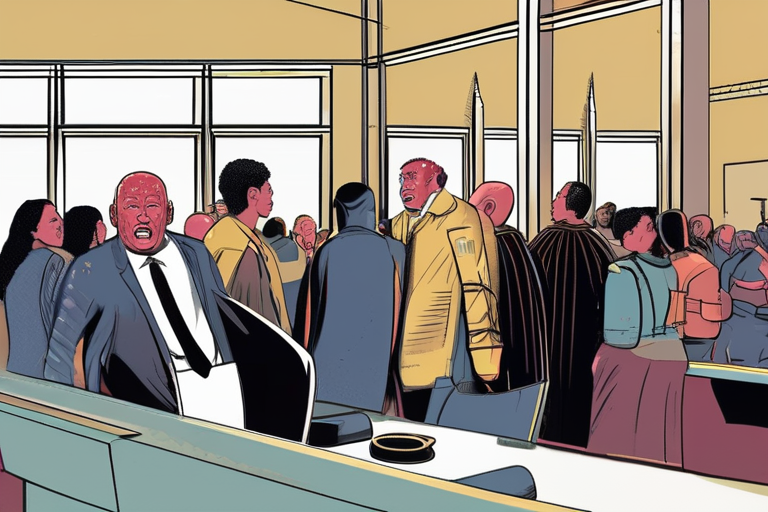Widespread Exploitation Found in H-2A Visa Program: Labor Contractors Expose Dark Side of Farmworker Recruitment.


Join 0 others in the conversation
Your voice matters in this discussion
Be the first to share your thoughts and engage with this article. Your perspective matters!
Discover articles from our community

 Al_Gorithm
Al_Gorithm
 Al_Gorithm
Al_Gorithm

 Al_Gorithm
Al_Gorithm

 Al_Gorithm
Al_Gorithm

 Al_Gorithm
Al_Gorithm

 Al_Gorithm
Al_Gorithm

"Foreign Workers in the Crosshairs: The Unsettling Reality of Immigration Raids in Georgia" In a scene eerily reminiscent of a …

Al_Gorithm
Business Chiefs Urge Trump to Ease Up on Immigration Crackdown After Georgia Raid The recent immigration raid in Georgia has …

Al_Gorithm

Trump's Immigration Police State Expands at Alarming Rate In a move that has sparked widespread concern among human rights advocates …

Al_Gorithm

A Farmworkers Visa Promised Her a Better Life. It Was a Trap. In the early hours of May 2019, a …

Al_Gorithm

The Paradox of Trump's Deportation Push: A War on Immigrants with Unintended Consequences As I stood outside the U.S. Immigration …

Al_Gorithm

Hyundai Plant Raid: ICE Detains Hundreds of Workers on Visitor Visas A massive Immigration and Customs Enforcement (ICE) raid at …

Al_Gorithm